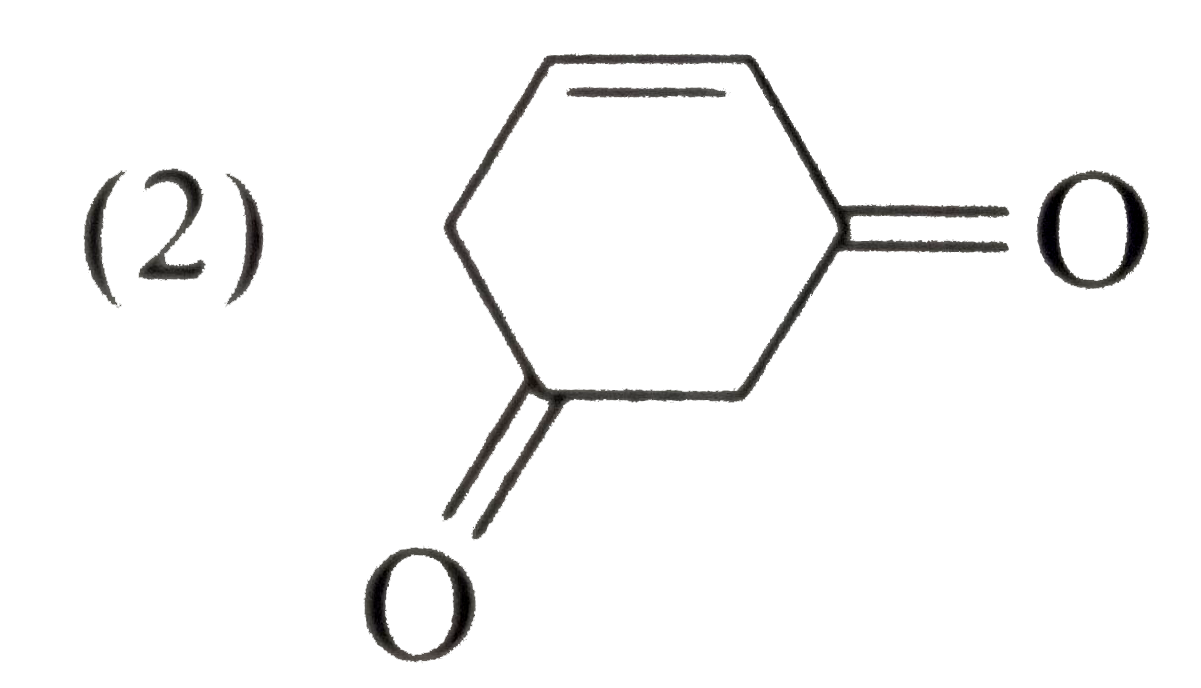Which of the following does not exhibit electromeric effect?
Ethers
Aldehydes
Ketones
Alkenes
The correct Answer is:A
To determine which of the following compounds does not exhibit the electromeric effect, we first need to understand what the electromeric effect is.
1. Understanding the Electromeric Effect:
- The electromeric effect occurs when an attacking reagent (like an electrophile or nucleophile) interacts with a molecule that has multiple bonds (double or triple bonds).
- In this interaction, the bond pair of electrons in the multiple bond shifts towards one of the atoms involved in the bond, leading to a temporary polarization of the molecule.
2. Identifying the Compounds:
- The question provides four types of compounds: Ether, Aldehydes, Ketones, and Alkenes.
- We need to analyze each compound to see if they contain multiple bonds.
3. Analyzing Each Compound:
- Ether: The general structure of an ether is R-O-R', where R and R' are alkyl groups. Ethers do not contain double or triple bonds.
- Aldehydes: The structure of an aldehyde is R-CHO, which contains a carbonyl group (C=O), indicating a double bond.
- Ketones: The structure of a ketone is R-CO-R', which also contains a carbonyl group (C=O), indicating a double bond.
- Alkenes: The structure of an alkene is R-CH=CH-R', which contains a double bond between carbon atoms.
4. Conclusion:
- Among the given options, only Ether does not have multiple bonds. Therefore, it does not exhibit the electromeric effect.
Final Answer:
Ether does not exhibit the electromeric effect.
- The electromeric effect occurs when an attacking reagent (like an electrophile or nucleophile) interacts with a molecule that has multiple bonds (double or triple bonds).
- In this interaction, the bond pair of electrons in the multiple bond shifts towards one of the atoms involved in the bond, leading to a temporary polarization of the molecule.
- The question provides four types of compounds: Ether, Aldehydes, Ketones, and Alkenes.
- We need to analyze each compound to see if they contain multiple bonds.
- Ether: The general structure of an ether is R-O-R', where R and R' are alkyl groups. Ethers do not contain double or triple bonds.
- Aldehydes: The structure of an aldehyde is R-CHO, which contains a carbonyl group (C=O), indicating a double bond.
- Ketones: The structure of a ketone is R-CO-R', which also contains a carbonyl group (C=O), indicating a double bond.
- Alkenes: The structure of an alkene is R-CH=CH-R', which contains a double bond between carbon atoms.
- Among the given options, only Ether does not have multiple bonds. Therefore, it does not exhibit the electromeric effect.
Ether does not exhibit the electromeric effect.
Topper's Solved these Questions
- GENERAL ORGANIC CHEMISTRYBOOK - R SHARMACHAPTER - GENERAL ORGANIC CHEMISTRYEXERCISE - Follow- up Test 9
6 Videos
- GENERAL ORGANIC CHEMISTRYBOOK - R SHARMACHAPTER - GENERAL ORGANIC CHEMISTRYEXERCISE - Question bank Level - I
1 Video
- GENERAL ORGANIC CHEMISTRYBOOK - R SHARMACHAPTER - GENERAL ORGANIC CHEMISTRYEXERCISE - Follow- up Test 7
11 Videos
- EQUILIBRIUMBOOK - R SHARMACHAPTER - EQUILIBRIUMEXERCISE - ARCHIVES
69 Videos
- ISOMERISMBOOK - R SHARMACHAPTER - ISOMERISMEXERCISE - Archives
11 Videos
Similar Questions
Knowledge Check
Which of the following does not show electromeric effect ?
AAlkenesBEthersCAldehydesDKetones.Which of the following does not exhibit tautomerism?
A B
B C
C D
D
Which of the following does not exhibit tautomerism?
A B
B C
C D
D